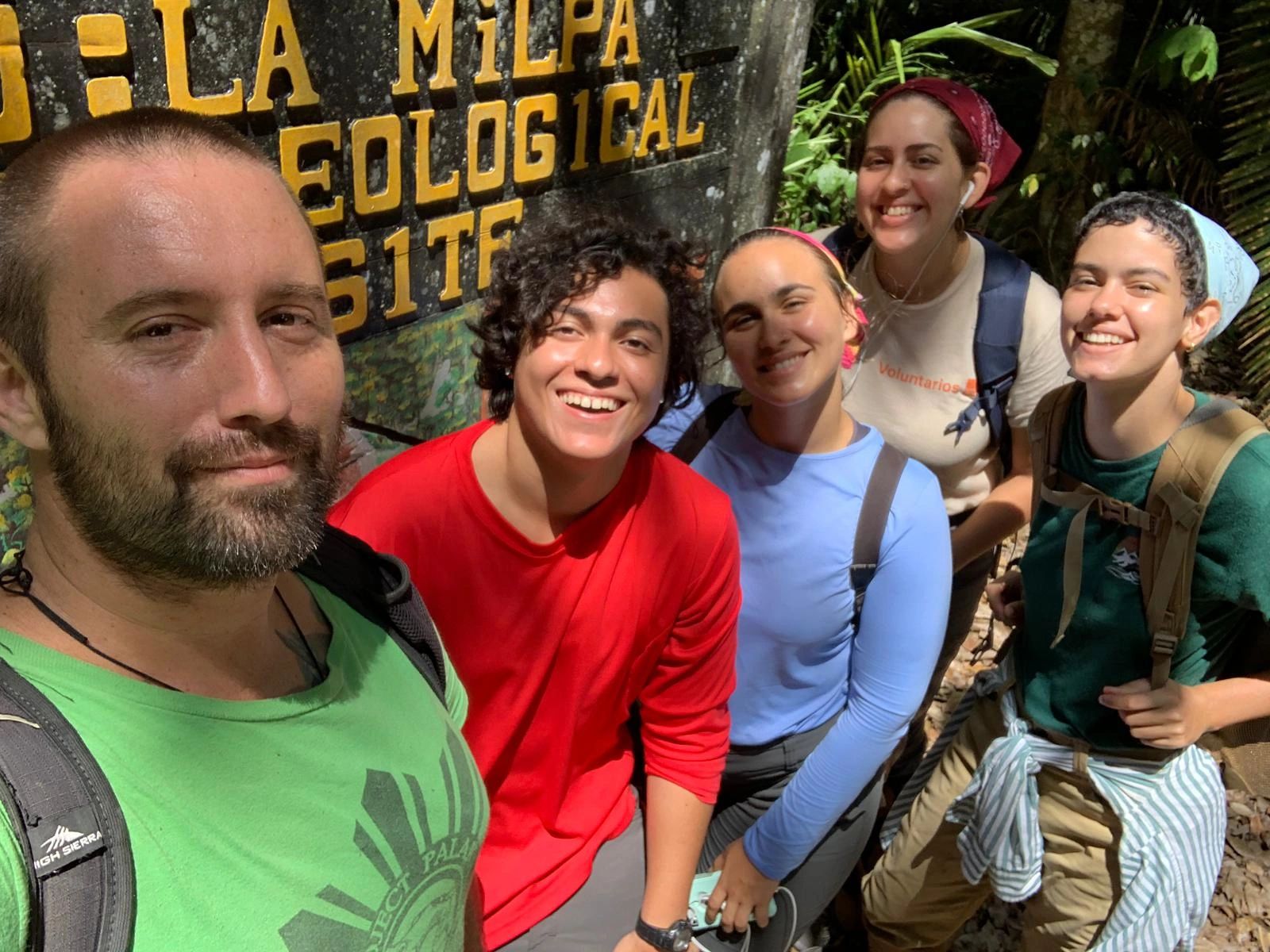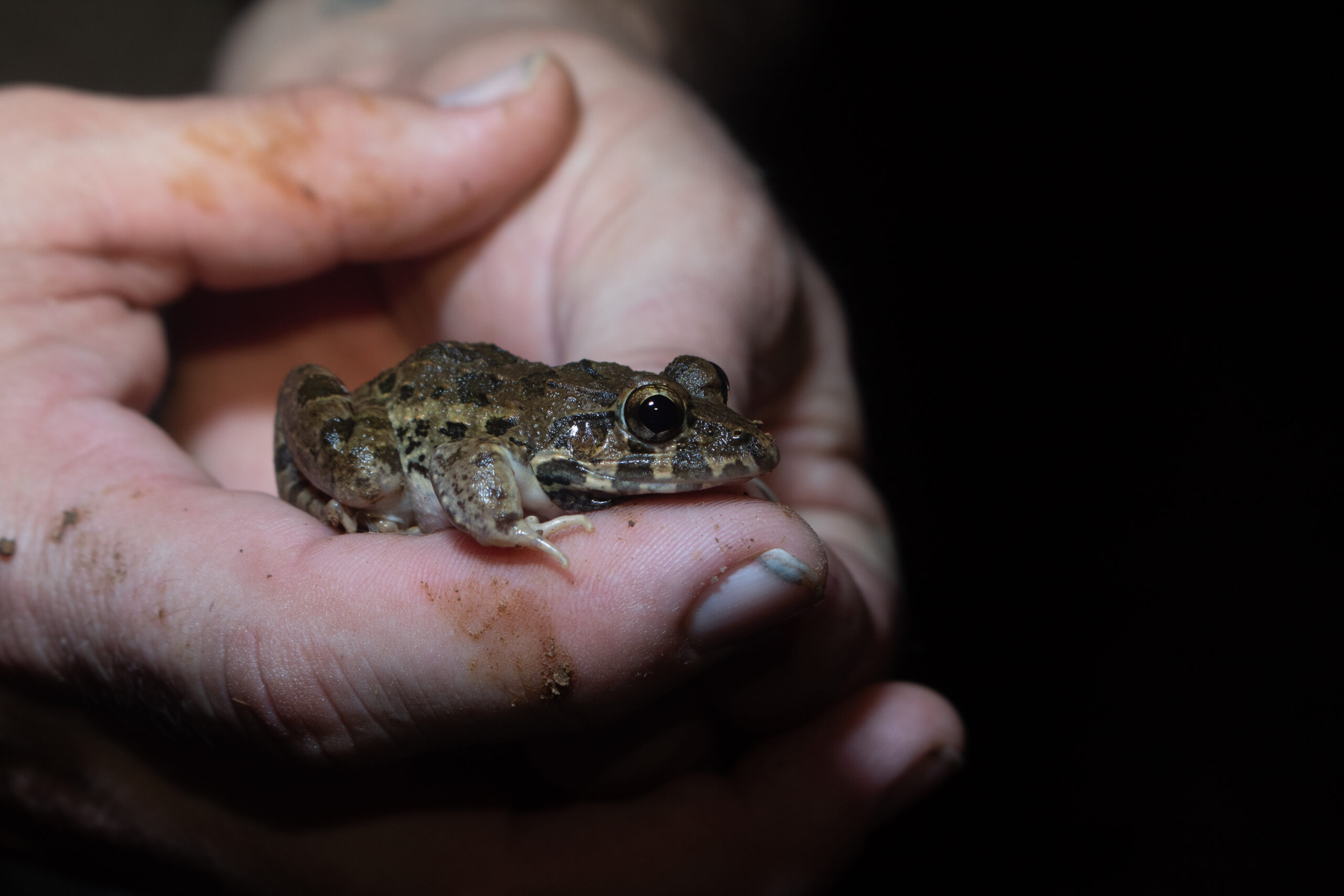Editor’s Note: As part of the Spy’s welcoming of the new year, we thought our readers would particularly enjoy this inspiring story by Mid-Shore native Norman Greenhawk and his conservation journey from Cordova to the Philippines to create the Harris Conservation Initiative and his plans for the Eastern Shore.
Twenty years ago, if you told me that I’d be writing this from the Philippines, I wouldn’t have believed you. It’s a far cry from Cordova, Maryland, where I was born and raised. Like most people in town, my family is working class; anyone familiar with Easton Farmers’ Market likely knows my mother’s business, CD Produce, a mainstay at the Saturday market for over 20 years. My grandfather spent his life as a construction worker at James Julian Construction in Delaware. My grandmother worked as a cafeteria manager at the Moton and Dobson buildings at Easton Elementary School in Easton, Maryland. My mother supported our family with her market produce business, and even after retirement, my grandparents helped us on the farm and at our family’s produce stand.
My grandparents, Harry and Stella Harris, lived just a mile from my house, and so every weekend I’d stay over from Friday afternoon until Sunday evening. We had a tradition; every week, we’d tune into Wild America and National Geographic documentaries that were aired on Maryland Public Television. These nature programs showed me a world that seemed like fantasy, with brightly colored treefrogs peeking out of bromeliads, giant birds swooping to catch prey, and forests that seemed older than time. My grandfather would take me fishing for bluegill and smallmouth bass at the “gravel pits” owned by his employer. My grandmother would buy every book that caught my eye; the topics usually centered on dinosaurs, tropical forests, frogs, lizards, and botany. My grandfather shared with me his passion of raising aquarium fish and tropical birds. When I wanted my first pet frog, he helped convert an old fish tank into a setup appropriate for housing amphibians.
They supported my love of nature and the outdoors, but more so, they encouraged my education. I’m the first member of my family to graduate from college, earning my undergraduate degree in Environmental Studies from Washington College in 2003. My career took me away from the Eastern Shore of Maryland. I’ve lived 11 years in Puerto Rico and five years in the Philippines. I’ve also worked and trained in Belize, Honduras, and Panama. My passions are conservation, herpetology (the study of reptiles and amphibians), forest ecology, and habitat preservation.

Norman Greenhawk (green shirt, on the left) on a trip to Belize with students from the Universidad de Puerto Rico, Rio Piedras
My specialty is ex-situ conservation, specifically, taking endangered animals from the wild, breeding them in captivity, and then returning the captive-bred offspring to the wild to boost populations. In 2015, my Fulbright award took me to the Philippines, where I established Project Palaka, the first organization in the country that focused on “ex-situ” (captive breeding) of endangered Philippine amphibians. We’re currently working to conserve and protect the Gigantes Limestone Frog, Platymantis insulatus, the most threatened frog species in the Philippines. Our team conducts population monitoring and threat assessment, in the remote Gigantes Islands, located in the Visayan Sea in the Philippines. We also have an assurance colony of the frog set up in Subic Bay, Zambales. Since October 2022, Project Palaka has been breeding the Gigantes Limestone frog in captivity, with plans to start reintroduction in late 2024.
Over the past two years, I’ve considered how to bring my experiences home to the Delmarva Peninsula. While my grandparents always worried about me, they supported my travels and work around the world. They have since passed on, and I miss them daily. As a way of honoring their memory, I created The Harris Conservation Initiative (“HCI”). Formed in 2021, HCI is a 509 (a)(2) charity. Through this organization, I seek to enact real, measurable conservation actions that focus on overlooked, understudied, and ignored species of herpetofauna and freshwater fish. I have established partnerships in the Philippines, Puerto Rico, and Belize. Now, I’m developing projects in two additional areas- Japan, and back home on the Delmarva Peninsula.
The Delmarva Peninsula, although small, contains six ecoregions and five types of wetlands. The Peninsula’s diverse habitats, from the forests of the Piedmont Uplands near Pennsylvania to the coastal wetlands, are home to 70 species of reptiles and amphibians and more than 40 species of freshwater fish. Conservation organizations around the world rightly focus on protecting the biodiversity of developing nations, where threats to the environment are often intensified. But that doesn’t mean that developed nations have solved all of their ecological concerns.
On a local level, I’m aiming to set up a network of study sites to monitor target species across various ecosystems on the Delmarva Peninsula, to establish updated baseline populations of threatened species, as well to enact data-driven conservation measures to protect Delmarva’s herpetofauna. I am also highly open to collaborating with local, established NGOs and conservation groups.
Just as importantly, I also began the Harris Conservation Initiative to provide the same opportunities that I have had to others. A major goal of the organization is to facilitate a research and collaboration exchange program between each project. From my time my graduate program at the Universidad de Puerto Rico, I know that every year, Puerto Rican students travel to Maryland’s Western Shore to engage in ecological research. I’d like to open that opportunity to the Eastern Shore and Delmarva, so that students from abroad can experience not only the peninsula’s unique natural landscape, but culture as well. I also want to see talented college students from Delmarva travel to and gain experience in herpetological surveys in Belize, or tropical forestry in Puerto Rico.
I believe that by providing these opportunities, young, aspiring conservationists will be able to gain experience working in ecosystems that they otherwise might not.
Norman Greenhawk is the director of the Harris Conservation Initiative. He is a graduate of Washington College and is holds a Master Herpetologist certification from The Amphibian Foundation. He is also a recipient of the National Geographic Explorer award and a U.S. Department of State Fulbright Specialist. He currently lives in Philippines.




Rob Etgen says
Bravo Mr. Greenhawk! its great to hear of your journey – and your desire to bring your skills back home to Delmarva. There are myriad conservation needs in this area with the most pressing being loss of saltmarsh species due to rising sea levels. But we also have amphibian and freshwater concerns including Tiger Salamander and other species dependent on our “Delmarva Bay” wetlands in northern Queen Annes and Caroline Counties and eastern Kent County. Check in with Eastern Shore Land Conservancy – at one point they were attempting to protect 50% of Delmarva to sustain many of the species that call this place home.